Jeb Bush: From Florida to failed 2016 campaign
- Published
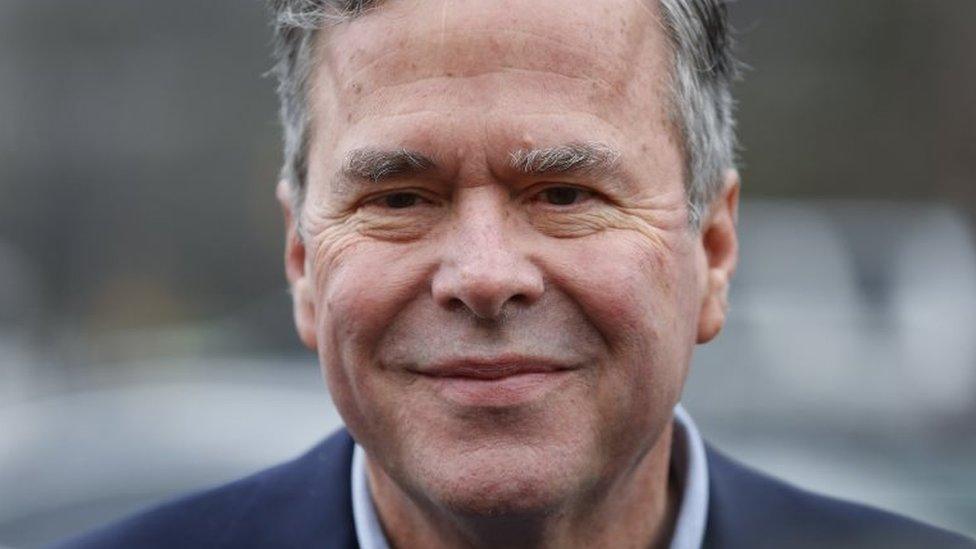
Former Florida Governor John Ellis "Jeb" Bush was hotly tipped to dominate the Republican field. But his expensive campaign ended after just three states.
Entering the race last June as an early favourite, Mr Bush enjoyed generous early support and was able to amass large donations.
But eight months later, with the primaries upon us, his campaign has failed to ignite and he after a disappointing run in Iowa, New Hampshire and South Carolina, he has finally pulled out of the race.
Mr Bush has spent a considerable amount of time casting himself as a moderate alternative to businessman Donald Trump and Senator Ted Cruz, who are both leading the Republican pack.
Lacklustre debate performances have not helped, and he has been on the defensive over the legacy of his brother, Former President George W Bush.
His life prior to declaring his presidential run suggested he had what it takes to make a serious run.
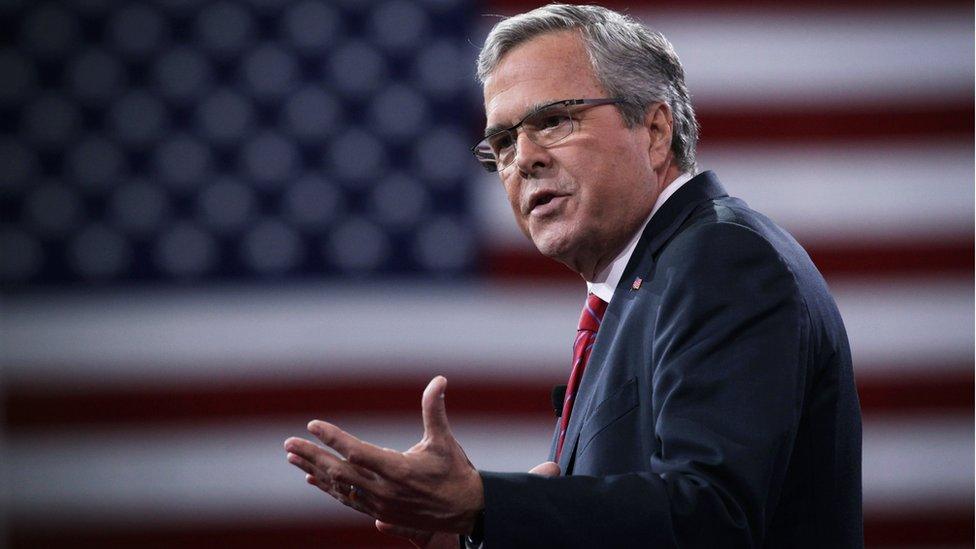
Born on 11 February 1953 in Midland, Texas, Mr Bush graduated from the University of Texas with a Bachelor of Arts degree in Latin American Studies.
In 1973, he married his wife Columba Garnica Gallo, who is Mexican, and they have since had three children.
After moving to Miami, Florida, in 1980 he helped form what would become a successful real estate company, the Codina Group.
Jeb Bush entered politics in 1984, when he was appointed chairman of the Dade County Republican Party.
Former governor Bob Martinez later put him in charge of the state's commerce department.
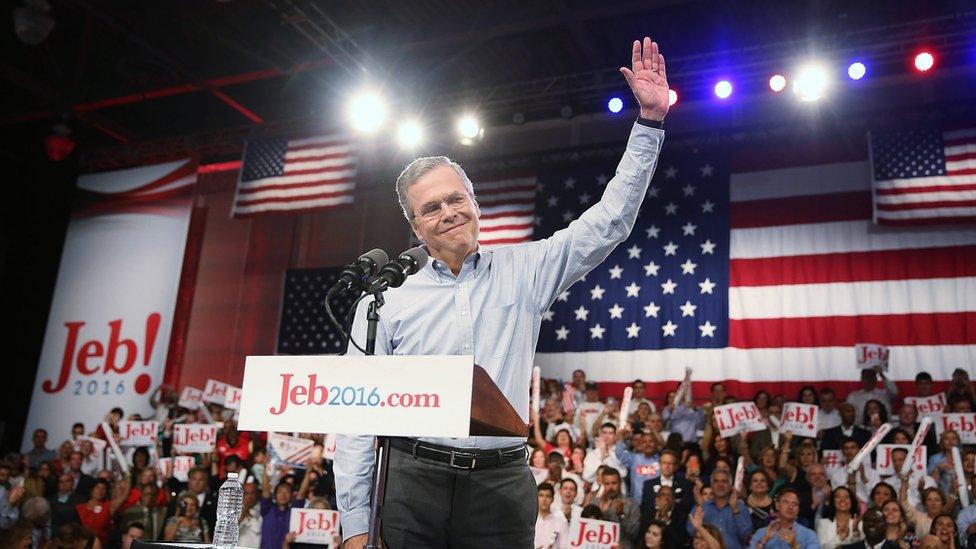
In 1994, Mr Bush ran for governor against a popular incumbent, Lawton Chiles, losing by a small margin.
He ran again four years later, but this time focused on issues normally regarded as Democratic Party territory: public school education, urban renewal, and Medicaid funding, among other social issues.
In his successful second run, Mr Bush was described as "a politician transformed," in contrast with his 1994 candidacy, in which most commentators agreed he came across as mean-spirited.
More moderate Republicans saw his easy, relaxed style as an example to his whole party of how to escape their reputation for zealotry without abandoning their traditional philosophy.
And for Jeb Bush, listening to people does not only mean hearing traditional Republican supporters.
In 1998, Mr Bush targeted traditionally Democratic voters - African Americans, Jews and the elderly.
During the campaign, the Jewish newspaper, the Jewish Journal, endorsed him as a "mensch" - a Yiddish word for a strong man who cares.
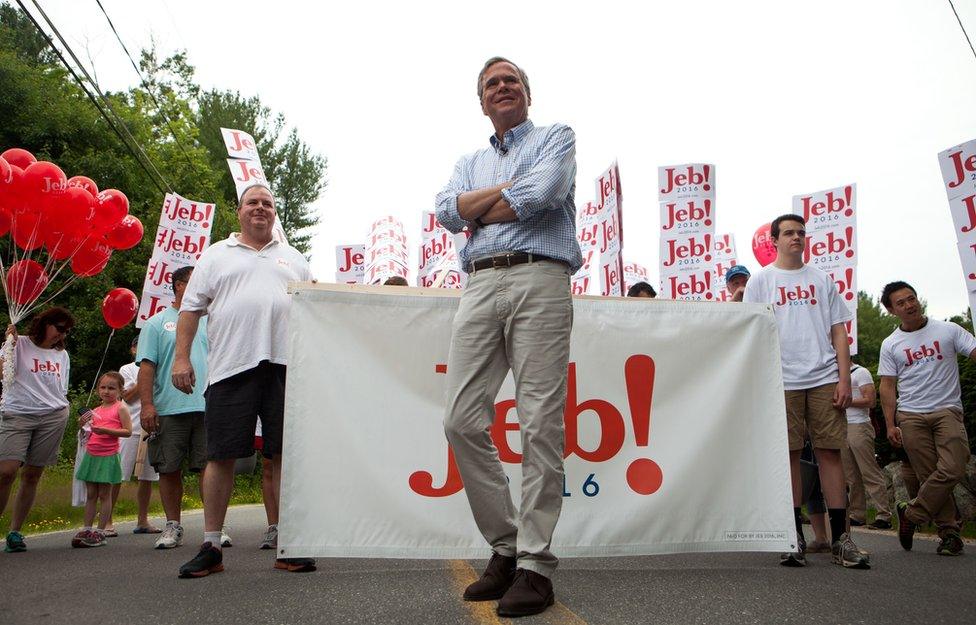
During his eight-year tenure as governor, Mr Bush overhauled the state's education system and pushed for substantial tax cuts.
He also created a speakers series, inviting prominent government officials and writers to address his cabinet.
Mr Bush's career has not been without controversy, however.
In 2001 he forcefully denied a rumoured relationship with a political appointee, and said he had never been unfaithful during his decades-long marriage.
He also voluntarily testified over his alleged involvement in voting "irregularities" in the hotly contested 2000 presidential election, which was decided on a handful of Florida votes and saw his brother take power.
Since leaving office in 2007, Mr Bush joined the boards of several companies, including InnoVida and financial giant Lehman Brothers.
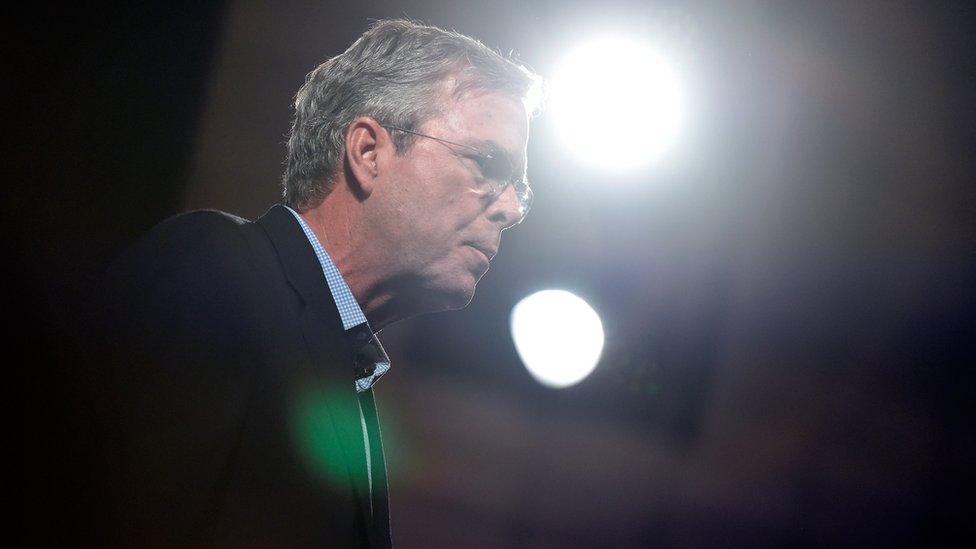
He has also advocated for changes to US education, including new standards called Common Core.
But those standards have attracted criticism from conservatives, who consider them a federal intrusion into local matters.
During the campaign, he has tried to temper his support, external of the standards, saying a compromise could be reached on the highly-contentious issue.
Mr Bush has also expressed more moderate views on immigration - proposing extending legal status, but not full citizenship, to some illegal immigrants - at odds with many Congressional Republicans.
He was one of the few Republican contenders to openly criticise frontrunner Donald Trump in the early days of campaigning. But his attacks did not bridge the gap, and he failed to win the crucial votes needed to continue to his campaign to the White House.